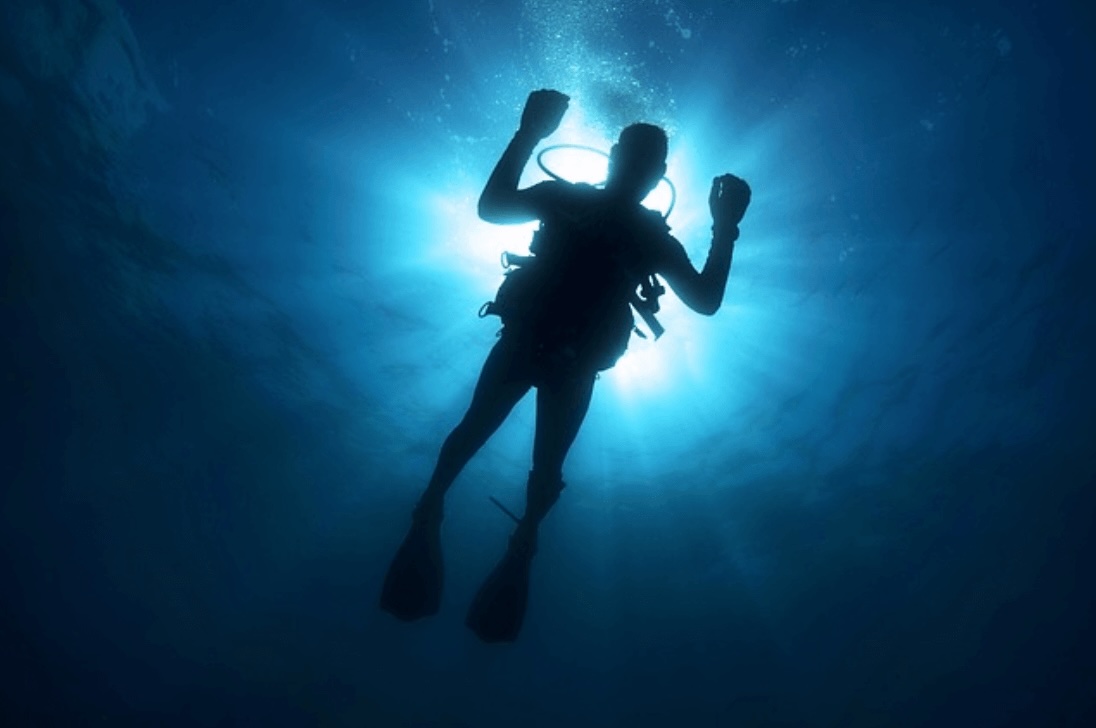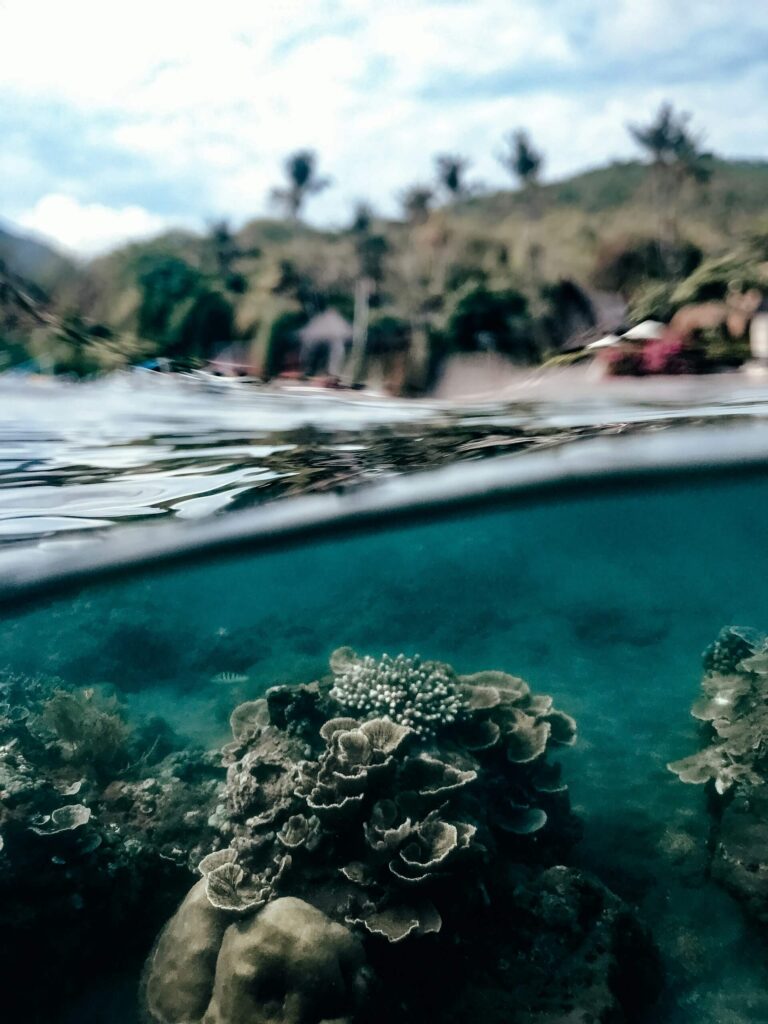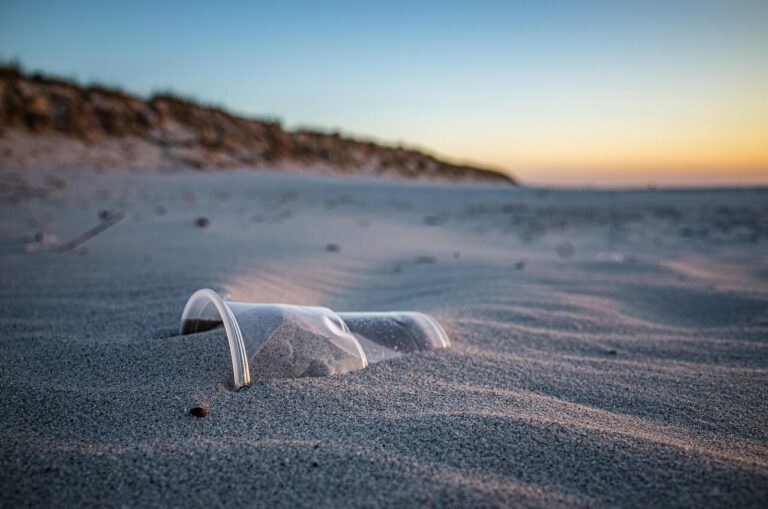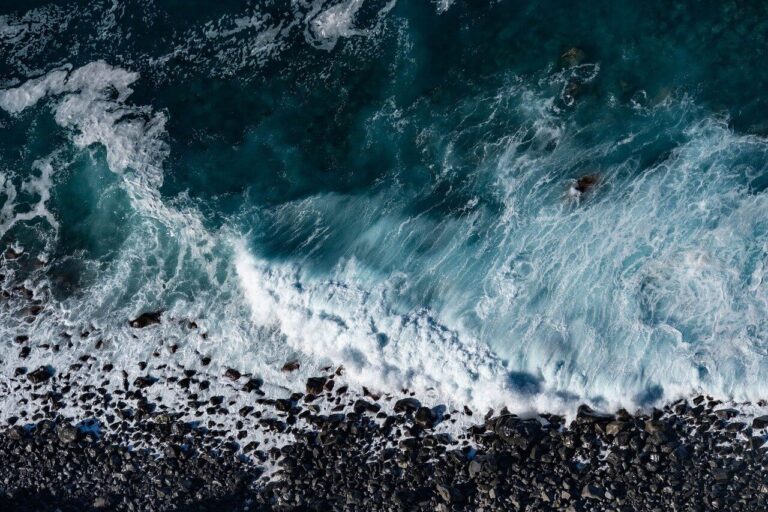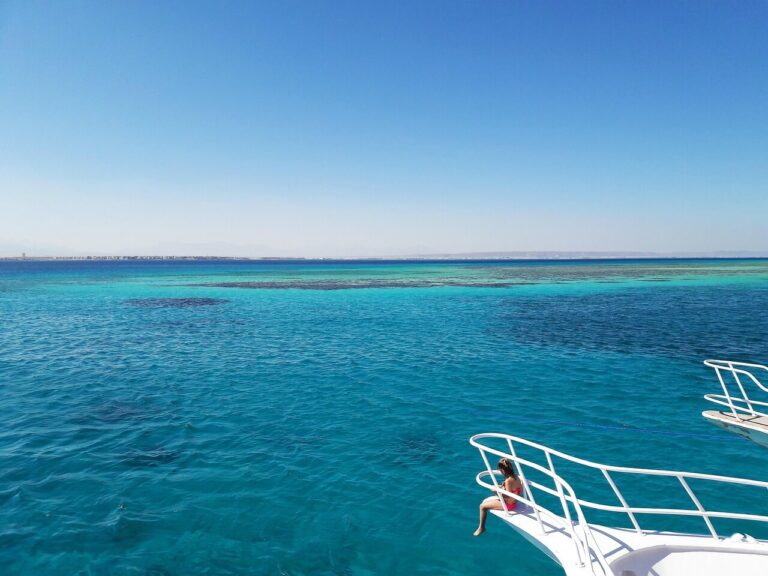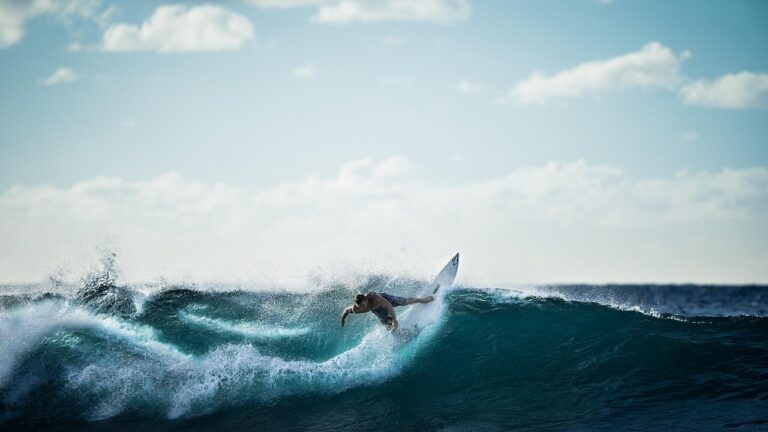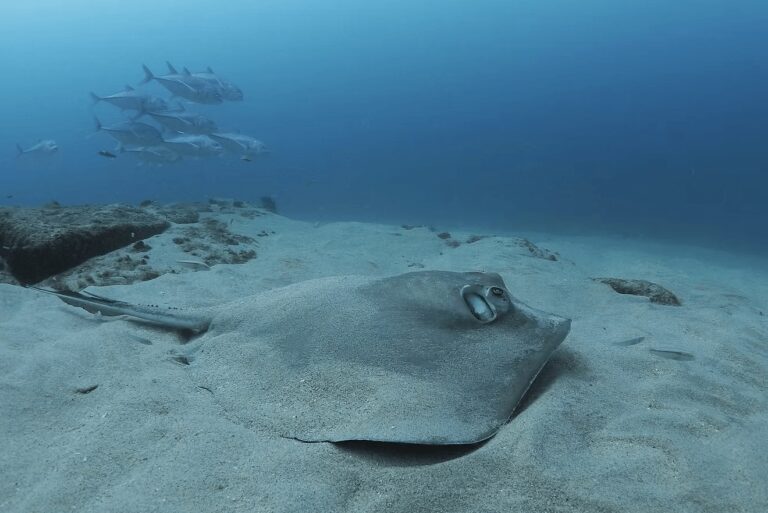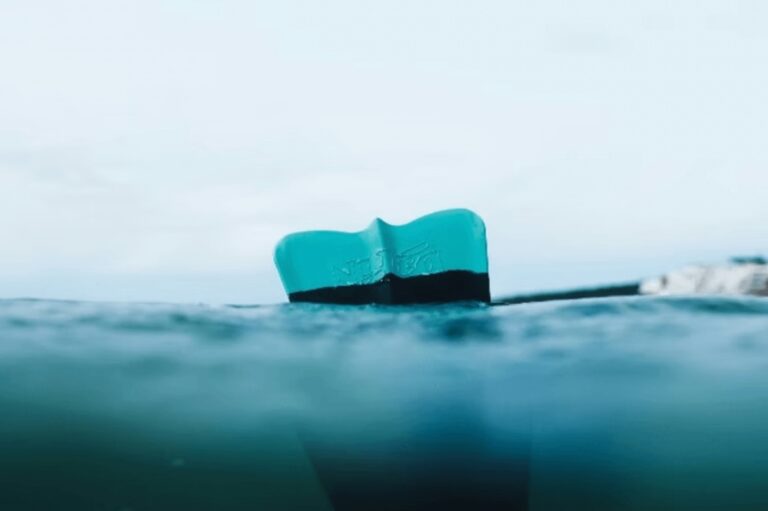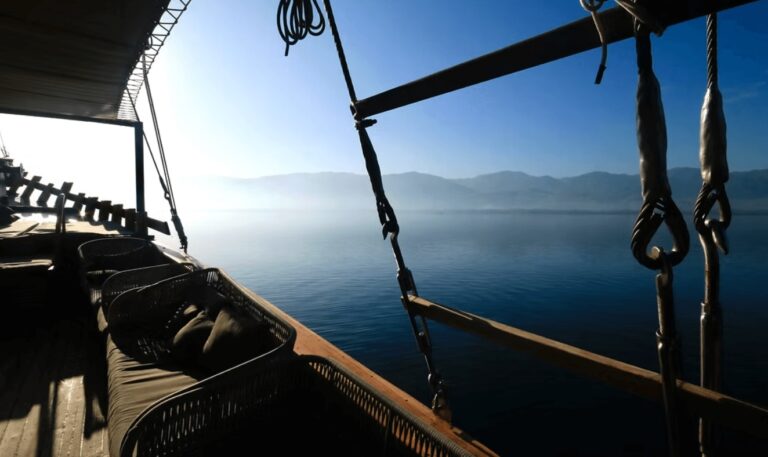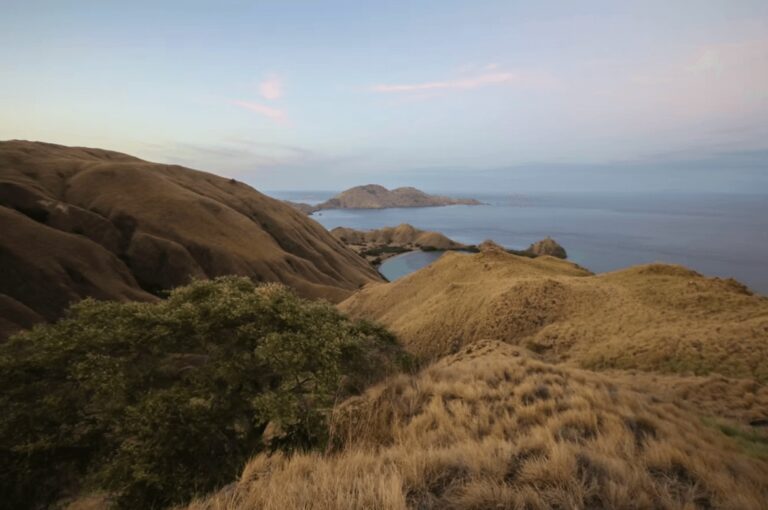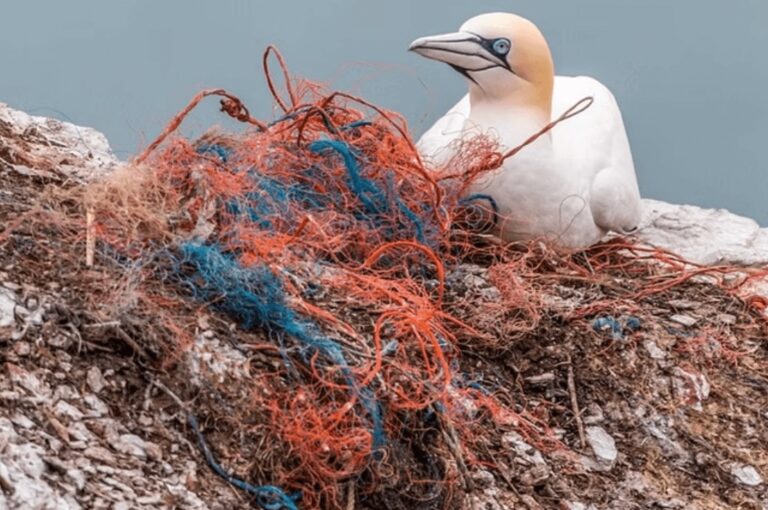7 Easy Ways to Be a Responsible Scuba Diver + Ocean Advocate
Scuba diving exposes us to a wonderful array of creatures, from colourful nudibranchs to magnificent mantas and inquisitive octopi. It also allows us to experience incredible underwater environments and landscapes that don’t exist elsewhere.
But many of these ecosystems face mounting threats – warming waters, acidifying oceans and swirls of plastic trash that make life underwater increasingly difficult.
As divers, we have a duty to protect these endangered creatures and the environments they call “home”.
So the next time you’re preparing to head below the surface, make a pledge to be a steward and ocean advocate, rather than just a spectator.
In this article, we’ll share 7 easy ways to be a responsible scuba diver and help preserve our marine ecosystems for future generations.
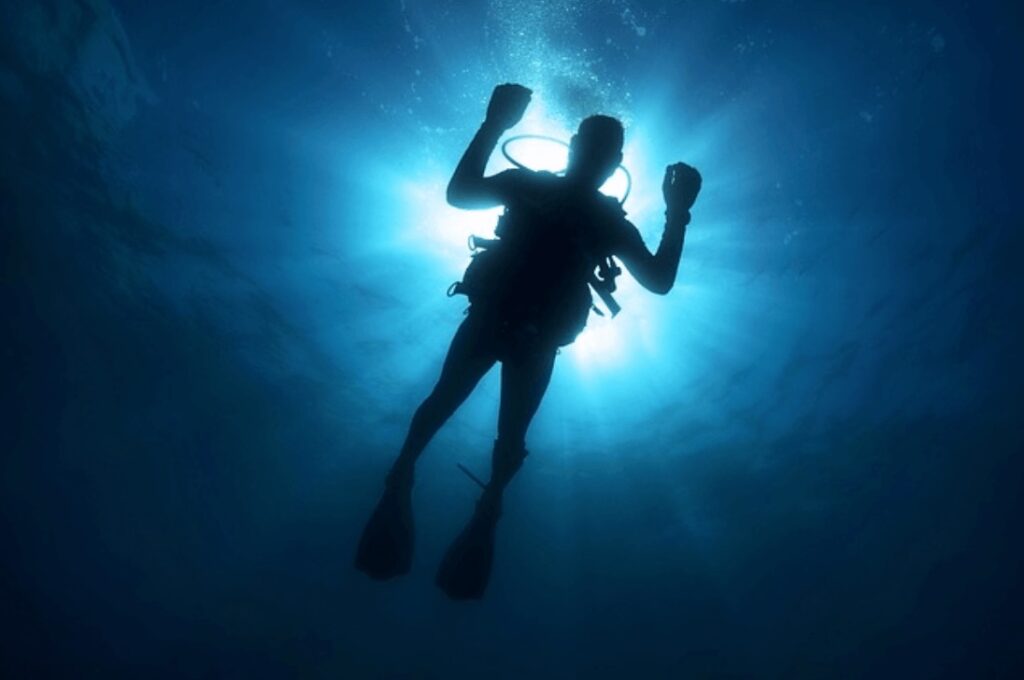
This article contains affiliate links, which means when you make a purchase through that link, we earn a small commission. Affiliate links come at no cost to you and ensure our content remains free!
Dive with responsible operators
One of the easiest ways to be a responsible diver is to look for dive operators who are passionate about conservation. For some, preserving marine environments is an integral part of their mission and they want you to be involved.
Ask about their policies on anchoring, waste management and protecting the seabed, all of which can have a significant impact on marine environments.
Do they enforce responsible diving practices, such as not baiting or touching marine life? And what are they doing behind the scenes to minimise their environmental impact?
If a dive operator can’t speak in detail about how they go about protecting local ecosystems, that’s a red flag!
Green Fins is making it easier for divers to identify sustainable operators and is a good first port of call. Check out this list of Green Fins-certified dive resorts if you want to ensure an eco-friendly stay.
That being said, watch out for greenwashing. Some companies boast sustainability claims that don’t hold water. If they don’t walk the talk, consider diving elsewhere.
Also, be wary of outfits promising “interactive” wildlife encounters and remember that ethical operators would never guarantee shark or whale sightings. These are wild animals – sometimes they will be there, sometimes they won’t.
Never, ever, EVER dive with operators that are baiting wildlife just to make tourist dollars.
Look for operators who limit their numbers in the water and offer small group dives (a guide:diver ratio of 4:1 is ideal).
Mass tourism stresses reefs and the animals that live there, so the less divers in the water, the better it is for marine life. Plus, fewer divers means your guide can provide a more personalised experience.
With a little research, you can find dive operators who align with your conservation values and are doing their bit to protect the marine ecosystems we love so much.
Discover some of our favourite eco-dive resorts around the world here. For eco-friendly liveaboards we love, head here.
Use reef-safe sunscreen
Have you ever slathered on sunscreen right before jumping into the ocean? Protecting your skin against UV rays is really important, particularly when on, in or around the water. Unfortunately, some lotions are doing more harm than good.
Many popular sunscreens contain chemicals like oxybenzone, octocrylene and octinoxate, which studies show can bleach coral reefs and deform fish. Instead, use reef-safe sunscreens made from natural and biodegradable products.
What makes a sunscreen reef-safe? It’s not only about avoiding those three harmful ingredients, as the issue also lies in the size of the particles. If they are nano-sized (under 100 nanometres) they can be absorbed by coral, regardless of the mineral used.
Opt for a sunscreen with non-nano, larger-sized zinc oxide or titanium dioxide particles. This provides broad-spectrum protection while ensuring the minerals stay on your skin, instead of sinking into fragile reef ecosystems.
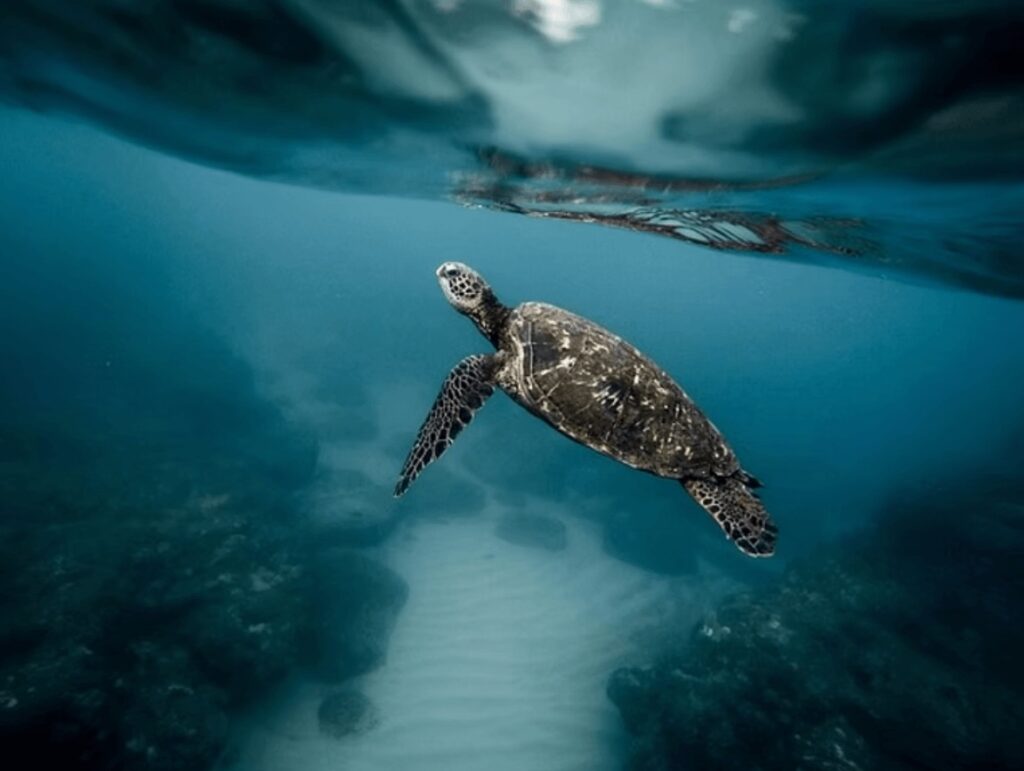
Select dive sites that match your skills
When selecting dive sites, it’s crucial to only dive those that suit your skill level. This ensures you’ll stay in command of your movements and buoyancy under the water, rather than crashing into the reef or scraping against coral.
If you’re not yet comfortable diving in currents, don’t go there. And if your buoyancy isn’t up to scratch, spend time working on it!
Mastering your diving buoyancy takes practice. But it’s well worth the effort and there are plenty of courses to help you take control.
When you’re neutrally buoyant, you’ll hang weightless in the water column, neither rising nor dropping. This spares the reef from accidental bumps and scrapes….and it spares you discomfort and injury.
Remember, experienced divers have spent years perfecting their technique. Don’t be afraid to start small and work your way up. The reefs will still be there when you’re ready for more challenging dives.
Taking the time to hone your buoyancy allows you to develop what is an all-important diving skill and protect the ecosystems we all treasure so much.
Looking for a new dive destination? Discover 10 UNESCO dive sites to explore before you die.
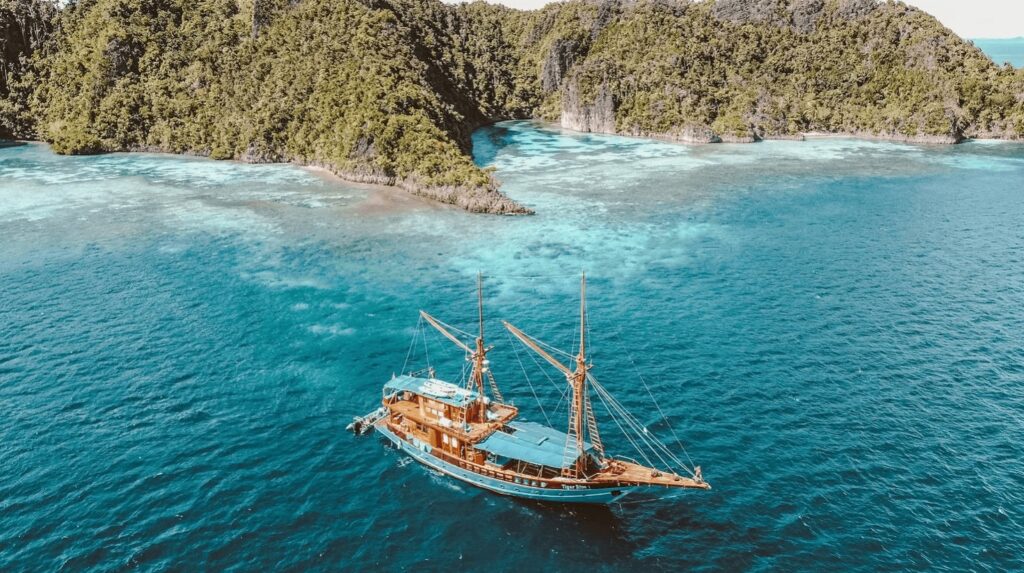
Be responsible on the dive
Before entering the water, secure your gear tight so that nothing dangles free – we’re looking at you regulators! Loose equipment can easily break coral and if your equipment gets damaged, it may bring your dive to a sudden end.
Proper weighting is also key. This will help you to manage yourself at depth and reduce your impact on marine sites.
With the right amount of weight in your belt or integrated into your BCD, you’ll find yourself effortlessly hovering. This allows you to navigate close confines and get an up-close look at marine life, without unwanted collisions.
When entering or exiting the water, avoid doing so on top of shallow reefs. Instead, enter and exit in deeper water, then fin over to (or back from) the reef.
When diving in shallow water, be mindful of your kicks so you don’t accidentally damage the coral below.
Once submerged, streamline your body, ideally with your arms folded in front or behind. In this way, you will glide through the water, rather than be flailing about.
When encountering marine life, it’s crucial to be respectful of their space and needs. Always keep your hands to yourself – don’t touch the reef or any marine life as it can be detrimental to their health.
If an animal feels threatened, a defensive response shouldn’t come as a surprise! To avoid finding yourself in this situation, always appreciate ocean creatures from a safe distance. Give them a wide berth, move gently through the water and don’t disrupt their habits. This ensures their well-being and your own.
Want to plan a sustainable dive vacation? Check out some of the best eco-friendly dive resorts in Southeast Asia.
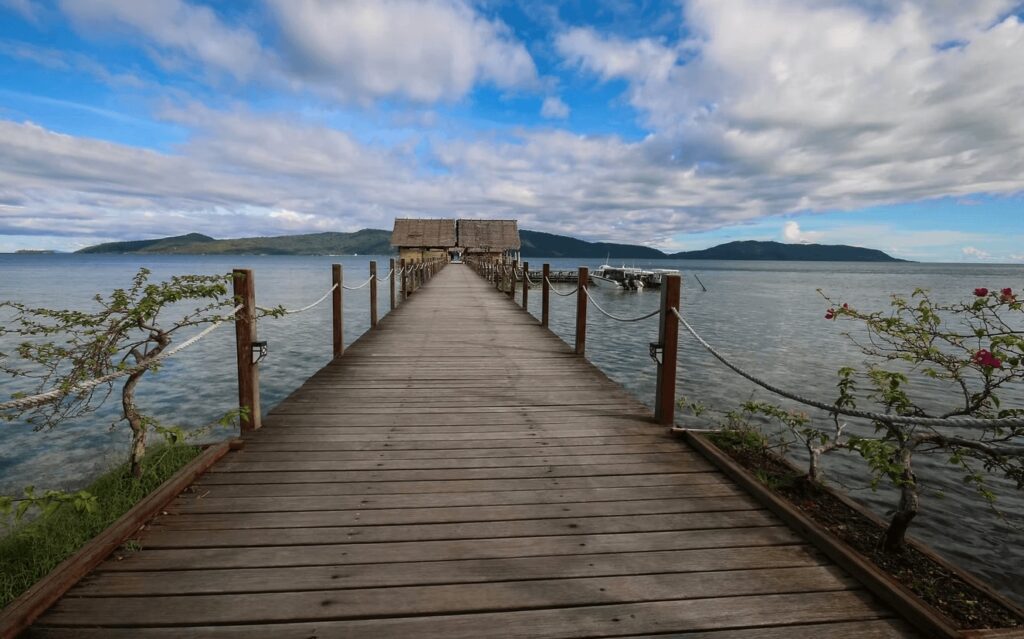
Collect rubbish along the way
The ocean may seem endless, but every piece of trash we remove makes a difference. So if you see a piece of rubbish during your dive, take it with you.
One diver’s efforts can inspire others to follow suit…. and many small actions together can drive great change.
Collecting debris while diving is simple. Bring a reusable bag or a mesh sack, then gather any plastic, cans, fishing line or other junk you encounter during the dive.
Alternatively, place the piece of rubbish in one of your BCD pockets to dispose of later.
When booking your next dive trip, look for operators hosting cleanup dives, which are a fun way to take action while meeting like-minded divers.
More and more centres are taking the initiative to help clean up their backyards and the collective results are making a difference.
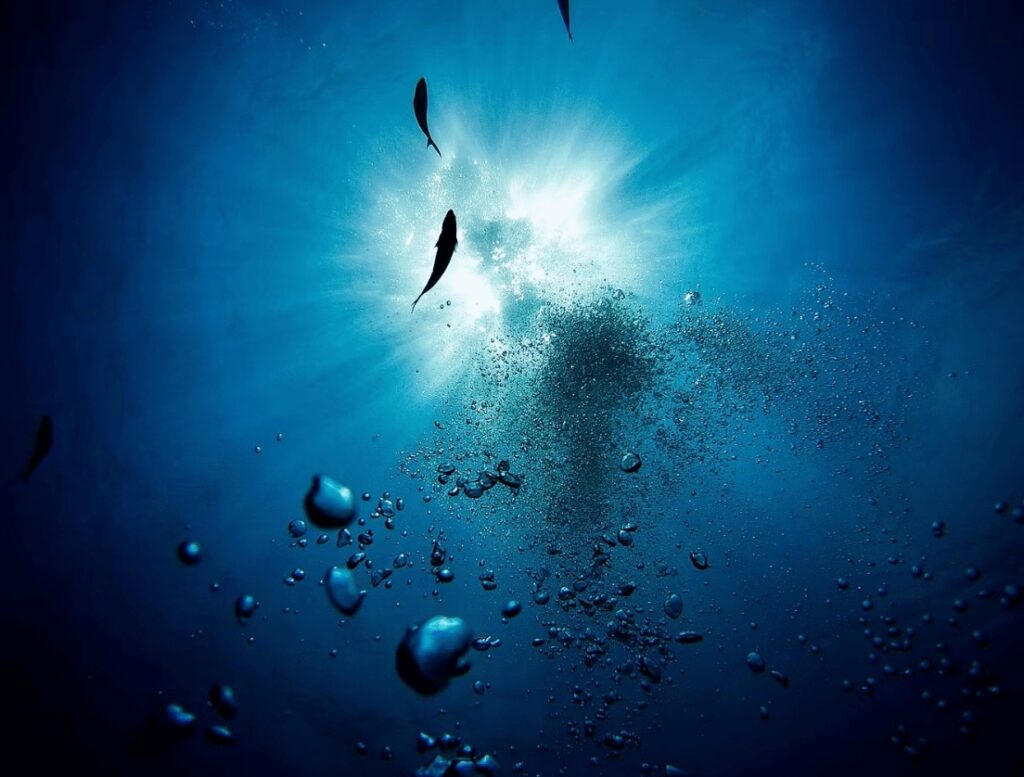
Leave nothing but bubbles
Lurking below the surface of our oceans are staggering levels of plastic pollution. It’s scary to say, but the Great Pacific Garbage Patch is just the tip of the iceberg.
This toxic soup threatens a range of marine life, including sea turtles. After ingesting plastic debris, many turtles develop “floating syndrome,” leaving them unable to submerge or evade predators. They simply drift aimlessly across the surface, unable to hunt or hide.
As divers and ocean lovers, it’s important that we take everything from the ocean that we bring in. Be sure to take all plastic waste with you and don’t leave trash on the boat that could get blown overboard while you’re busy underwater.
It’s also important to retrieve all gear, even if it’s broken. Never abandon equipment, weights or photography accessories. These can trap, entangle or poison ocean wildlife if left behind.
Support marine conservation projects
As divers, we have the rare opportunity to experience the incredible beauty of the underwater world while actively protecting it.
By supporting marine conservation initiatives, you’ll be helping to preserve fragile underwater ecosystems while gaining a better understanding of issues threatening them.
Many non-profits and volunteer organisations are seeking trained divers to support critical data collection efforts in endangered marine habitats.
Whether you’re a newbie gearing up for that Open Water certification or an experienced diver ready to tackle advanced training, you can find a project that matches your abilities.
Alternatively, donate to marine conservation organisations, such as the Olive Ridley Project, the Marine Megafauna Foundation or the Coral Reef Alliance. Each has a particular focus, so it’s easy to find a mission that you are passionate about.
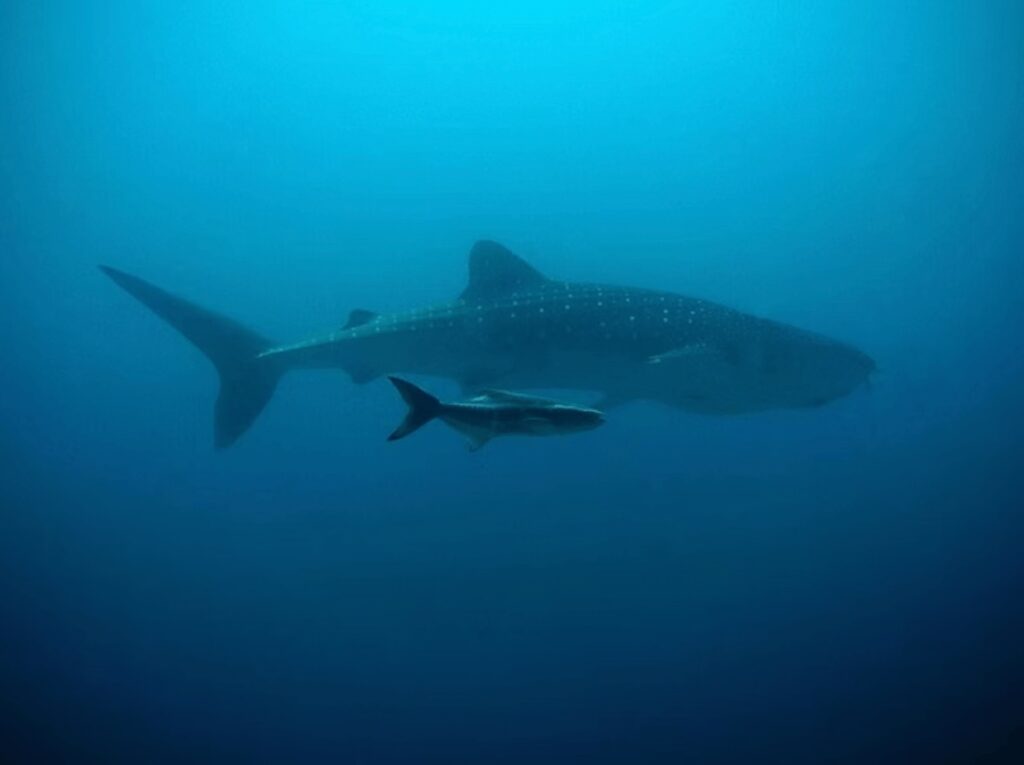
Being a responsible scuba diver
Here at Eco Ocean Escapes, we’re passionate about our oceans and encouraging others to treat them with reverence. As responsible scuba divers, we aim to be stewards of our oceans and protect marine ecosystems for generations to come.
The next time you don your scuba gear, we encourage you to do so with the deepest respect for our marine life and a commitment to minimising your impact on it. Thankfully, you can easily do this by respecting wildlife boundaries, avoiding contact with coral and carefully disposing of any waste you generate or encounter.

PLAN YOUR TRIP WITH OUR FAVOURITE RESOURCES:
Find hotels and resorts via Booking or Agoda
Book tours and experiences via Viator or GetYourGuide
Find a rental car via Discover Cars
Book flights via Kiwi or Booking
Search for buses and trains via 12Go or Omio
Get travel insurance via SafetyWing
Buy a digital eSIM with Airalo
By purchasing through our links, you’ll be supporting our website at no additional cost to you
About the authors
We are a team of passionate divers and surfers with decades of combined experience in the water and travelling to all corners of the globe. After years of chasing waves and descending into the deep blue, we’ve created this resource to highlight sustainably run surf camps, eco-friendly dive resorts and conservation-focused ocean trips to help inspire your next adventure.
Eco Ocean Escapes was born out of a love of the ocean, an obsession with travel and a concern about the impacts of our adventures on the environments we explore. Despite the benefits that surf and dive tourism can bring to local communities, we recognised that ocean-based adventures are not always managed in a sustainable manner.
Through our articles, we hope to inspire those seeking a responsible surf or dive trip that is all about supporting local communities, preserving our coastal environments and the incredible marine species that inhabit our oceans.
-
Are Luxury Surf Resorts Compatible With Sustainability?
Luxury surf resorts promise a dream vacation: uncrowded waves, paradisiacal beaches and five-star facilities in some of the world’s most remote destinations. Not only do they mean exclusivity, but also incredible food and all the creature comforts you could desire after your session. But behind the infinity pools and curated “eco” language lies a difficult…
-
Top Ocean Conservation Apps For Surfers and Divers
As surfers and divers, we experience the ocean in a deeply personal way. We see coral bleaching up close, notice changes in water quality and witness the impact of plastic pollution firsthand. So how can we use this first-hand knowledge and local insights for good? The reality is that you don’t need to be a…
-
Ocean Plastic Pollution and the Role of Divers in Clean-Up Efforts
Plastic pollution is one of the most visible and destructive threats facing our oceans today. From floating bottles and ghost fishing nets to microplastics embedded in coral reefs, plastic waste has reached even the most remote dive sites on the planet. As international divers, we’ve seen the issue of plastic pollution around the globe –…
-
The Carbon Footprint of Surf Trips: How to Reduce + Offset Yours
Surf travel is all about chasing waves, feeling a complete sense of freedom and embracing time spent in nature. Here at EcoOceanEscapes, we also believe it’s an incredible opportunity to connect with locals and discover unique corners of the globe. But the reality is that most surf trips (especially international ones) come with a heavy carbon…
-
Sustainable Dive Liveaboards in the Red Sea: What to Look For
The Red Sea is one of the world’s most iconic dive destinations, with thriving coral reefs, dramatic drop-offs and historic wrecks like the SS Thistlegorm. It lures divers from across the globe, with most basing themselves along the Egyptian coastline or boarding one of the many liveaboards that ply the Red Sea’s waters. But the…
-
The Ethics of Surf Tourism in Developing Nations: Travelling Aware
If you’ve done a few surf trips around the globe, you’ll know that travel impacts destinations, sometimes for better, sometimes for worse. Surf tourism has transformed once-quiet coastal communities into globally renowned hotspots, bringing money, infrastructure and crowds. From Morocco to Sri Lanka, Mozambique to Indonesia, waves that were once surfed almost exclusively by locals…
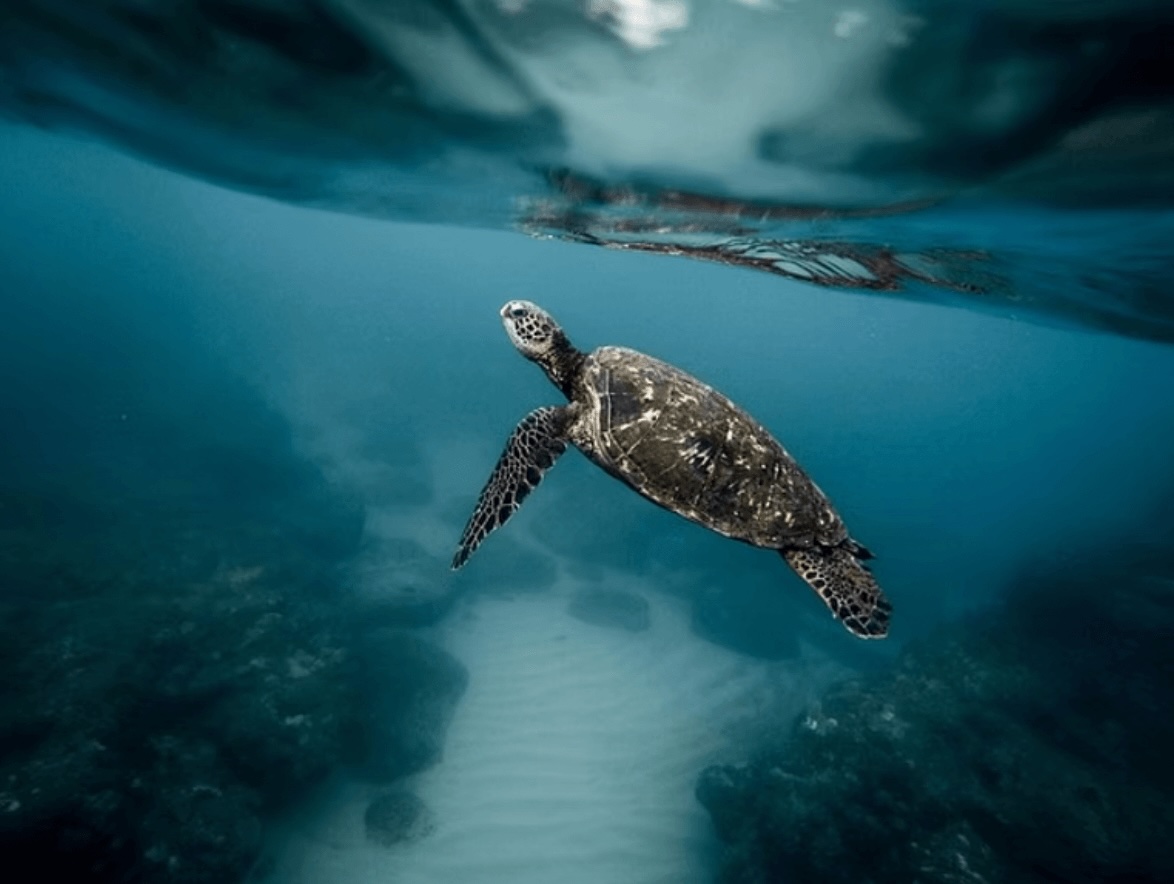
We are a team of passionate divers and surfers with decades of combined experience in the water and travelling to all corners of the globe.
After years of chasing waves and descending into the deep blue, we’ve created this resource to highlight sustainable surf camps, eco-dive resorts and conservation-focused ocean trips to help inspire your next adventure.
Eco Ocean Escapes was born out of a love of the ocean, an obsession with travel and a concern about the impacts of our adventures on the environments we explore.
